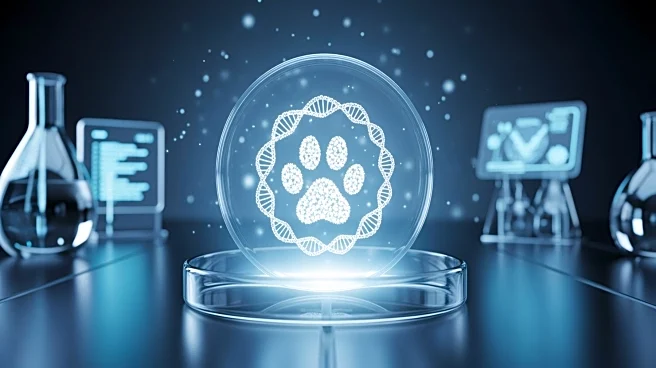What's Happening?
Tom Brady has announced the cloning of his late dog, Lua, as part of his investment in Colossal Biosciences, a company specializing in pet cloning. Brady revealed that his new dog, Junie, is a genetic
clone of Lua, whose DNA was preserved before her death. The cloning process, facilitated by Colossal's acquisition of Viagen, highlights Brady's involvement in the biotech industry. While pet cloning remains a controversial practice, Brady's announcement reflects his transition into a post-playing career focused on innovative ventures. The cloning process, which involves complex scientific techniques, underscores the ethical and technological challenges associated with replicating animals.
Why It's Important?
Brady's involvement in pet cloning highlights the intersection of celebrity influence and biotechnology, raising questions about the ethical implications of cloning. As a high-profile figure, Brady's endorsement of this practice may influence public perception and acceptance of cloning technologies. The announcement also reflects broader trends in the biotech industry, where advancements in genetic engineering are pushing the boundaries of scientific capabilities. As cloning becomes more accessible, discussions around its ethical considerations and potential impact on biodiversity and animal welfare are likely to intensify.
Beyond the Headlines
The cloning of pets raises significant ethical questions about the nature of identity and the implications of replicating living beings. While cloning offers the possibility of preserving genetic material, it challenges traditional notions of individuality and the uniqueness of life. Brady's decision to clone his dog underscores the complexities of personal attachment and the desire to maintain connections with lost loved ones. As biotechnology continues to evolve, society must grapple with the moral and philosophical dimensions of cloning, balancing scientific progress with ethical considerations.











